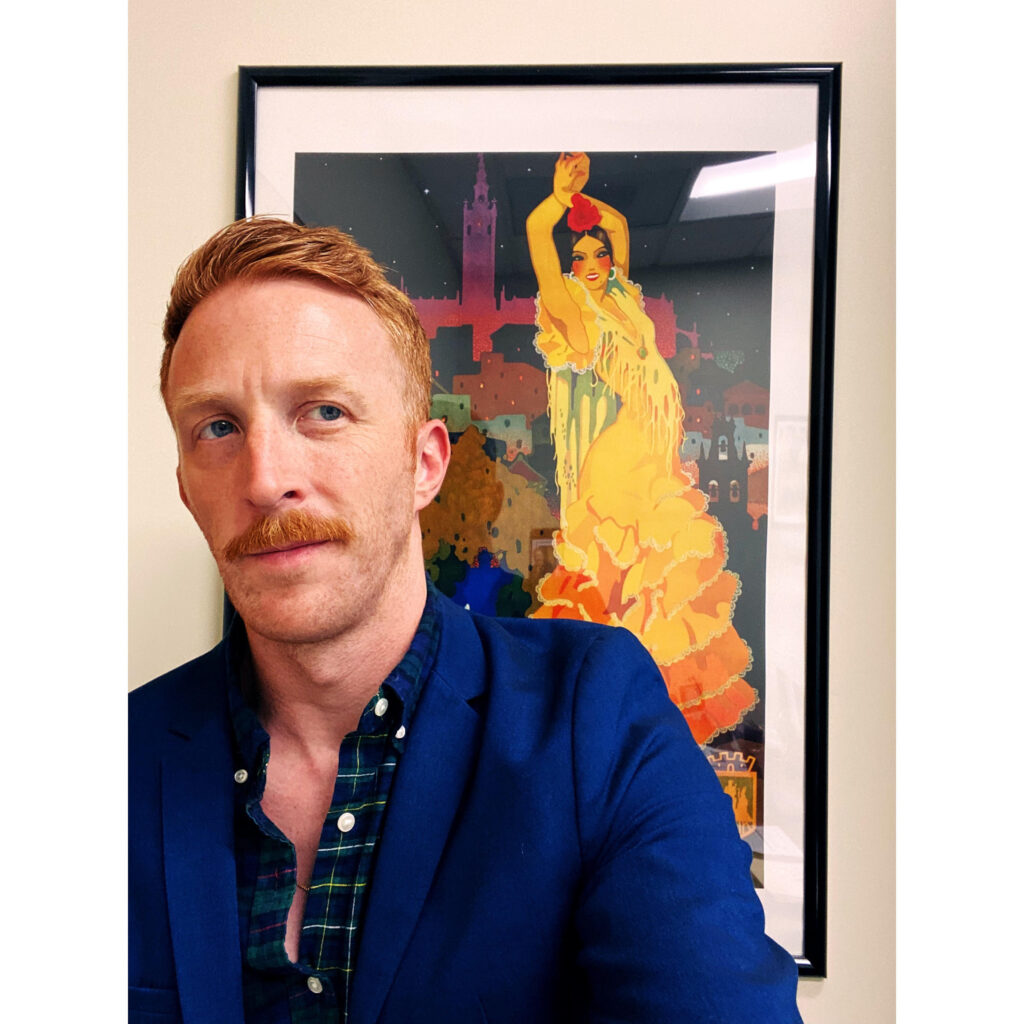Nicholas Wolters

Nicholas Wolters, Ph.D.
Associate Professor
wolterna@wfu.edu
336-758-3916
Greene 537
Website
18th and 19th Century Iberian Literature and Visual Culture
Nicholas Wolters is Associate Professor in the Department of Spanish. Before joining the faculty at Wake Forest, he earned his MA in Spanish and French from the University of Delaware and completed his PhD in Spanish at the University of Virginia. Nicholas’ teaching and research interests include modern and contemporary Iberian (Spanish, Catalan, Portuguese) literature and visual culture, masculinities studies, and film and television studies. His interdisciplinary work on these and related topics appears in peer-reviewed edited volumes and journals such as Journal of Spanish Cultural Studies and Romanic Review. Prof. Wolters would be happy to work with students on a variety of related topics in his seminars (SPA 338, SPA 369) or as part of an honors thesis.
His first book, Masculine Figures: Fashioning Men and the Novel in Nineteenth-Century Spain (Vanderbilt University Press, 2023), studies cultural representations of men—from the student and the priest to the businessman and the heir—as signs of authorial self-fashioning among bourgeois novelists like Benito Pérez Galdós and Narcís Oller. In a second book project, tentatively titled “Man against Nature: A Cultural History of Manliness and the Natural World in Modern Iberia,” Wolters will examine the heretofore unexplored relationship between masculinity and nature during the turn of the century in Spain and Portugal. The book will investigate how artists and intellectuals from Eça de Queiroz and Pereda to Casas and Rusiñol manufactured complementary and competing visions of modernity and manliness by aestheticizing the Iberian Peninsula’s diverse climates, flora and fauna, and landscapes.
He is also working on English translations of Narcís Oller’s first novels in Catalan: La Papallona (“The Butterfly”, 1882), and L’Escanyapobres (The Miser, 1884), both of which were translated to French and Spanish during the author’s lifetime and earned him the attention and praise of Émile Zola.
- SPA 212: Exploring the Hispanic World
- SPA 280: The Spanish-Speaking World: Portals and Perspectives
- SPA 310: Anecdotes, Bestsellers, Cuentos: The ABCs of Storytelling
- SPA 313: Lights, Camera, ¡Acción!
- SPA 315: The Making of Spain
- SPA 338: Fashioning Gender, Class, and National Identity in 18th-19th-Century Spain
- SPA 369: Special Topics Seminar
